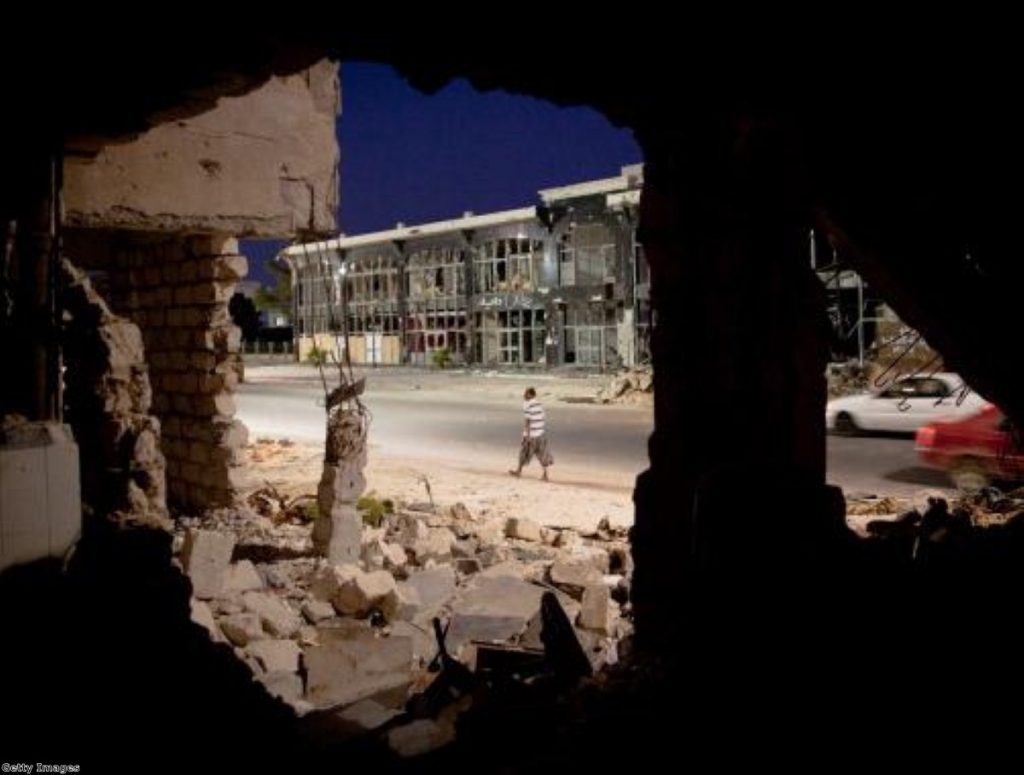Inquiry to probe UK’s Libya rendition links
By Alex Stevenson Follow @alex__stevenson
Claims that MI6 worked with Libya's intelligence agencies over the rendition of a terror suspect are to be investigated by an independent inquiry.
The Gibson inquiry, which was originally established to probe allegations about the improper treatment of detainees, said it would incorporate the Libyan link in its remit.
"Significant accusations have been reported today that under the last government relations between the British and Libyan security services became too close, particularly in 2003," David Cameron told the Commons.
"My concern throughout has been to deal with these accusations of malpractice so as to enable the security services to get on with the vital work they do.
Labour leader Ed Miliband backed the move, despite the fact that it could point the finger at ministers in the previous Labour government.
"The Gibson inquiry must get to bottom of what we have seen – no part of the state should ever be complicit in torture," he said.
Revelations about the rendition of Abdul Hakim Belhaj from Hong Kong to Tripoli are extremely embarrassing for the British government, which has repeatedly denied complicity in the torture of terror suspects.
The documents, seen by Human Rights Watch, reveal a close relationship between Britain's security services and their Libyan counterparts during the 'war on terror'.
A letter from MI6's head of counter-terrorism Sir Mark Allen to Moussa Koussa, the head of Libyan foreign intelligence who went on to become Muammar Gaddafi's foreign minister, made clear Britain's delight at the rendition.
Sir Mark wrote to Mr Koussa: "This was the least we could do for you and for Libya to demonstrate the remarkable relationship we have built over recent years.
"I am so glad. I was grateful to you for helping the officer we sent out last week."
Mr Belhaj was the leader of the banned Libyan Islamic Fighting Group at the time. He has re-emerged as a key figure in the rebel forces fighting against Colonel Gaddafi, leading the Tripoli military council.
Mr Belhaj has demanded an apology from Britain and America. He is also considering taking legal action.
"The detainee inquiry is looking at the extent of the UK government's involvement in, or awareness of, improper treatment of detainees including rendition," the inquiry said in a statement.
"We are therefore, of course, considering these allegations of UK involvement in rendition to Libya as part of our work.
"We will be seeking more information from government and its agencies as soon as possible."
The UK has repeatedly denied assisting the US with its rendition of terror suspects, a practise the Americans are known to have used to avoid laws preventing them from using torture techniques on US soil.
Former foreign secretary Jack Straw said in a statement: "At no stage did I ever authorise or turn a blind eye to unlawful practices by the Secret Intelligence Service in relation to torture, rendition or any other matter. To the very best of my knowledge it did not take place."
MI6 established strong relations with the Libyan intelligence agencies after its successful role in persuading Col Gaddafi to abandon his weapons of mass destruction.
UK officials helped Col Gaddafi draft a speech and conduct negotiations with the International Atomic Energy Agency, the Independent newspaper reported.
Papers also showed that it was Tony Blair's office which had suggested that the prime minister's meeting with Col Gaddafi take place in a tent.
"No 10 are keen that the prime minister meet the leader in the tent," an MI6 official wrote.
"I don't know why the English are fascinated by tents. The plain fact is that the journalists would love it."





-01.png)